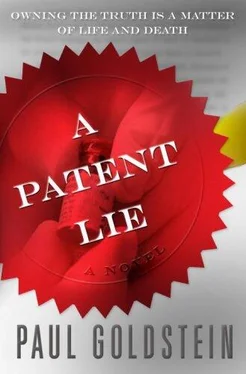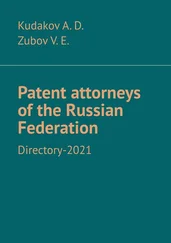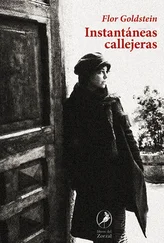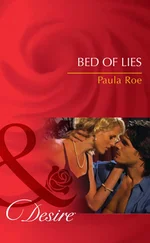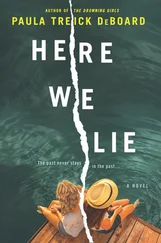Paul Goldstein - A Patent Lie
Здесь есть возможность читать онлайн «Paul Goldstein - A Patent Lie» весь текст электронной книги совершенно бесплатно (целиком полную версию без сокращений). В некоторых случаях можно слушать аудио, скачать через торрент в формате fb2 и присутствует краткое содержание. Жанр: Криминальный детектив, на английском языке. Описание произведения, (предисловие) а так же отзывы посетителей доступны на портале библиотеки ЛибКат.
- Название:A Patent Lie
- Автор:
- Жанр:
- Год:неизвестен
- ISBN:нет данных
- Рейтинг книги:3 / 5. Голосов: 1
-
Избранное:Добавить в избранное
- Отзывы:
-
Ваша оценка:
- 60
- 1
- 2
- 3
- 4
- 5
A Patent Lie: краткое содержание, описание и аннотация
Предлагаем к чтению аннотацию, описание, краткое содержание или предисловие (зависит от того, что написал сам автор книги «A Patent Lie»). Если вы не нашли необходимую информацию о книге — напишите в комментариях, мы постараемся отыскать её.
A Patent Lie — читать онлайн бесплатно полную книгу (весь текст) целиком
Ниже представлен текст книги, разбитый по страницам. Система сохранения места последней прочитанной страницы, позволяет с удобством читать онлайн бесплатно книгу «A Patent Lie», без необходимости каждый раз заново искать на чём Вы остановились. Поставьте закладку, и сможете в любой момент перейти на страницу, на которой закончили чтение.
Интервал:
Закладка:
The judge's gavel rapped. She had completed the morning's motion calendar. “We'll take a five-minute recess, and then proceed to opening statements in Vaxtek v. St. Gall.” At his small desk next to the jury box, the bailiff, a young Asian in blazer and gray slacks, rose at her signal to bring in the jurors.
Seeley waited for the coughs, murmurs, and shuffling of feet to subside, then walked to the wooden lectern. For the first time that morning, he looked directly at the jurors, one after the other, pausing no more than a moment to engage each pair of eyes. He moved from left to right along the back row, then right to left along the front. He glanced up at the bench. “May it please the court.”
A juror in the front row, the nurse, raised her hand. Farnsworth looked at her seating chart. “Yes, Ms. Ortiz?”
Ms. Ortiz gestured at the bailiff. “The pen he gave me doesn't write.”
That brought laughter from the courtroom and from the judge, who came down the stairs from the bench and handed the woman her own silver pen. She wagged a finger at her. “Now remember, Ms. Ortiz, I want that back when the trial's over.” Her smile took in all the jurors. When she was back in her chair she nodded at Seeley.
“Good morning,” Seeley said. “My name is Michael Seeley. I represent Vaxtek, Incorporated, the patent owner and plaintiff in this lawsuit. Vaxtek is a small biotech company with 220 employees whose headquarters and research labs and production facility”-here Seeley smiled-“whose entire business is located in South San Francisco, just eleven miles from this courtroom. Vaxtek is suing Laboratories St. Gall, the third largest pharmaceutical company in the world, with 110,000 employees and annual sales of $60 billion, for stealing Vaxtek's pioneering invention, AV/AS, the most effective treatment any scientist has yet developed, or any company has yet produced, to prevent the onset of AIDS. Although the defendant is a Swiss company, with headquarters in St. Gall, Switzerland, and facilities around the globe, Vaxtek is seeking justice here, in this courtroom in San Francisco.”
This was Seeley's theory of the case, Pearsall's path to victory: the injustice of letting an overgrown schoolyard bully from outside the neighborhood steal lunch from the frail, brainy kid with glasses; the injustice that every juror would correct if he could. Research into jury behavior showed that, by the end of opening statements, nine of ten jurors have irrevocably decided how they will vote in a case, but Seeley believed that they decided earlier than that. He wanted the jurors to understand at once that he was here to guide them not so much to truth, as to justice. The schoolyard bully had to be punished.
“As Judge Farnsworth explained when she picked you for this jury, this is a patent infringement case. To protect its invention of AV/AS, Vaxtek is relying on a patent granted to it by the United States Patent Office, much as you would rely on the title to your car or the deed to your home to stop someone from stealing your property. Like you, Vaxtek worked hard to acquire this property.”
The kid, Sansone, had on a sport coat today, and a poorly knotted woolen tie. If Seeley read him correctly, Sansone had decided that he was going to be, if not the jury's foreman, then at least its guiding force.
“Now, the U. S. Patent Office doesn't just hand out patents to anyone who shows up and asks for one. It has almost five thousand examiners, every one of them an expert in his or her field, and these examiners analyze each patent application they receive to determine whether the applicant's invention is sufficiently new to justify the grant of a patent. One of these examiners, Dr. Harriet Siler, studied Vaxtek's discovery of AV/AS, and only after carefully comparing AV/AS to all of the earlier discoveries in the field, did Dr. Siler, whose doctorate is in microbiology, conclude that AV/AS was indeed novel and entitled to the patent we are talking about in this trial. As Judge Farnsworth will instruct you at the end of the trial, unless St. Gall can prove that Dr. Siler made an error, you must vote to uphold the patent.”
There was no need for Seeley to explain-Thorpe would certainly do so-that examiners, like Siler, who issue these patents lack the resources available to private lawyers like Boyd McKee who are well paid by their clients to extract from these government employees the broadest possible patents they can.
“Legally, then, Vaxtek has no obligation to prove that its invention meets this standard of novelty. The U. S. Patent Office has already decided that. But because AV/AS is so crucial to Vaxtek's survival as a company, we are going to put on several witnesses who will demonstrate to you why the Patent Office made no mistake, and why this invention is entitled to the fullest protection that American patent law can provide against theft.”
Seeley gave the jurors a preview of the expert witnesses who would testify for Vaxtek, briefly describing the testimony of each. His nerves quickened when he reached Steinhardt. The scientist had returned from Paris on Saturday, a day early, and exploded when Barnum told him that he would not be testifying first. Steinhardt telephoned Seeley, demanding that he meet him at his home at once, and slammed down the receiver when Seeley said he was too busy with trial preparation to do so. It wasn't until Sunday afternoon, while Seeley was preparing his first witness, Nicolas Cordier, that Steinhardt called again.
“I have decided that if I am not to testify first, I will not testify at all. Without me, there would be no AV/AS.”
This was kid stuff, Seeley thought, and Steinhardt a whining brat. Just to see what Steinhardt's reaction would be, he said, “I can subpoena you as a hostile witness.”
“What purpose could that possibly serve?”
Seeley thought of the question Pearsall had written under his sketch of the scientist. “We can find out what you're hiding.”
“What makes you think I'm hiding something?” There was less rancor in the tone than before.
The first bluff had worked, so Seeley tried a second. “I talked with Lily Warren.”
After a long silence, Steinhardt said, “I have no secrets, and I will demonstrate that when I testify.” This time he did not slam the receiver when he hung up.
Seeley quickly scanned the jury, then glanced at his watch. He had consumed less than the half hour he'd allotted to summarizing Vaxtek's case. He gave himself twenty minutes, no more, to anticipate and undermine St. Gall's case, and five minutes to summarize and close.
“Mr. Thorpe, who is St. Gall's lawyer”-he nodded in the direction of counsel's table where Thorpe sat surrounded by his team, and was pleased to see the jury follow the direction of his gaze-“is going to put on witnesses who will try to tell you that Vaxtek's invention does not rise to the level of novelty that the U. S. Congress, in passing the Patent Act, requires before a patent can issue to an invention. Mr. Thorpe's witnesses are also going to tell you that St. Gall's product is different from AV/AS and, for that reason, doesn't infringe Vaxtek's patent. But we will put on witnesses who will show you that despite superficial differences, St. Gall's product is in fact identical in every relevant respect to Vaxtek's.”
Seeley checked the courtroom. Judge Farnsworth, in a starched white collar with a bright, knotted scarf, but otherwise neutered by the black robes, was following closely. Barnum's hands were clasped across his belly. He looked pleased. Palmieri, head down, was working at the keyboard of his laptop, activity that could distract a jury. Seeley would need to talk to him about that.
“I noticed,” Seeley grinned, “that when I mentioned microbiology some moments ago, a couple of you flinched. You may be asking yourself”-here Seeley lightened his tone and inclined toward the jury box, as if to bring the jurors into his confidence-“if Vaxtek's scientific advance is so significant, how am I going to understand it? Well, I know that if Father Comisky, who tried to teach me high-school biology at St. Boniface Academy thirty years ago, knew I was talking to you about these scientific concepts, he'd turn over in his grave. But I promise you, you're going to hear more from our witnesses about common sense than abstract science, and the science they explain to you will be as clear and colorful as Father Comisky himself would have made it.”
Читать дальшеИнтервал:
Закладка:
Похожие книги на «A Patent Lie»
Представляем Вашему вниманию похожие книги на «A Patent Lie» списком для выбора. Мы отобрали схожую по названию и смыслу литературу в надежде предоставить читателям больше вариантов отыскать новые, интересные, ещё непрочитанные произведения.
Обсуждение, отзывы о книге «A Patent Lie» и просто собственные мнения читателей. Оставьте ваши комментарии, напишите, что Вы думаете о произведении, его смысле или главных героях. Укажите что конкретно понравилось, а что нет, и почему Вы так считаете.
